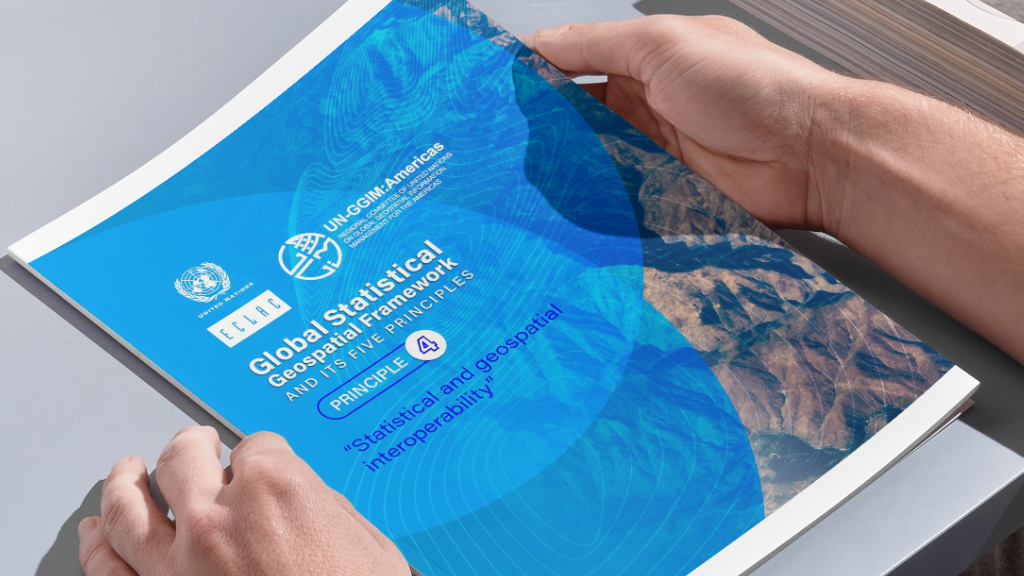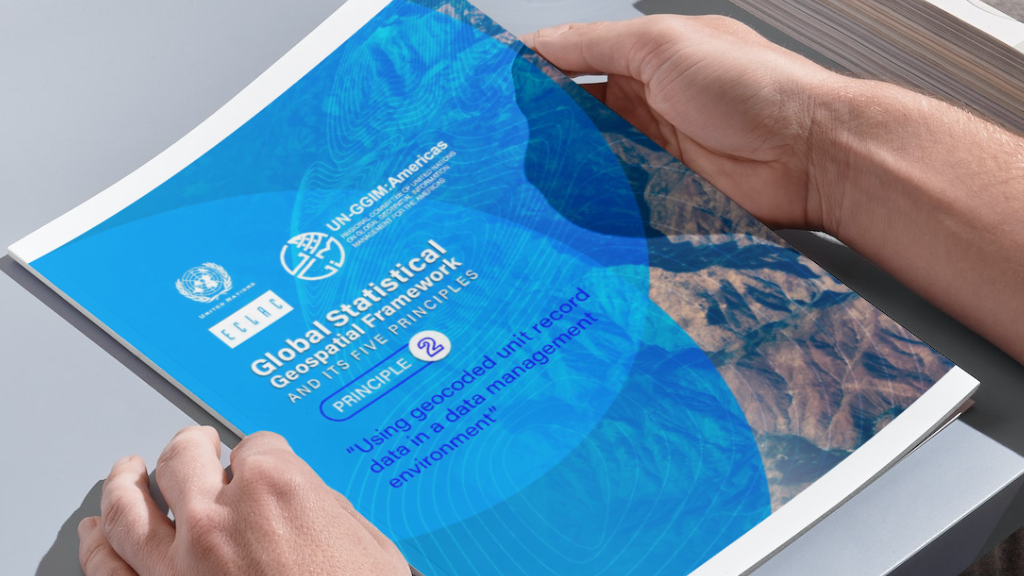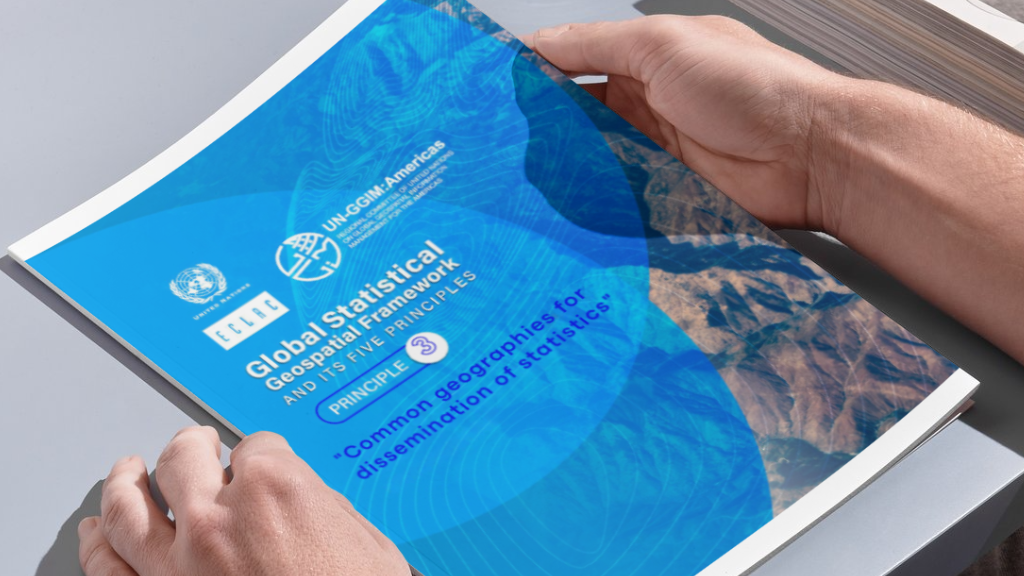Seminar on the Global Statistical and Geospatial Framework - Principle 4
Work area(s)
Teaser
The objective of this virtual seminar is to provide Member States and interested parties with the conceptual foundations related to the five principles of the United Nations Global Statistical and Geospatial Framework, to enhance the use of integrated statistical and geospatial information.
Event information

Date
18 Jun 2024, 06:00 - 07:00Event type
The Global Statistical Geospatial Framework (GSGF) enables a range of data to be integrated from both statistical and geospatial communities and, through the application of its five Principles and supporting key elements, permits the production of harmonized and standardized geospatially enabled statistical data. The resulting data can then be integrated with statistical, geospatial, and other information to inform and facilitate data-driven and evidence-based decision making to support local, sub-national, national, regional, and global development priorities and agendas.
Principle 4: Statistical and geospatial interoperability
Principle 4 defines the preconditions for statistical and geospatial data to work as a data ecosystem, in which those involved interact with each other to exchange, produce, and consume data. Interoperability between statistical and geospatial data and metadata standards, is needed to overcome structural, semantic, and syntactic barriers between data and metadata from different communities and providers. Furthermore, it is necessary to enhance the efficiency of discovery, access, and use of geospatially enabled data. Often, full interoperability of data first requires the removal of obstacles in country-level laws, policies, and organizations that hamper cooperation between stakeholders and create barriers between producers and end users. Enhancing interoperability allows both the statistical and geospatial communities to continue to operate their own general data models, metadata capabilities and architectures, while efficiently and seamlessly accessing, integrating, and linking datasets across different systems and applications. Therefore, Principle 4 urges the use of internationally adopted standards and good practices from both communities to enable greater interoperability of statistical and geospatial data, standards, processes, and organizations.
Implementation of Principle 4 achieves the following objectives:
- Greater efficiency and simplification in the creation, discovery, integration and use of geospatially enabled statistics and geospatial data;
- Ensures service-based or machine-readable access mechanisms (e.g. through APIs) are implemented to provide greater efficiency of access and use, and to allow adaptation and evolution of uses through time; and,
- Increases the potential application of a larger range of data and technologies.
Seminar Objectives:
- Provide guidance to Member States and stakeholders, on the implementation of the resulting Global Statistical and Geospatial Framework - (GSGF).
- To strengthen interrelationships with relevant groups in the statistical and geospatial communities.
- Provide Member State representatives responsible for geostatistical integration the opportunity to learn about challenges around statistical and geospatial integration and establish work plans that identify and promote solutions in a participatory and inclusive manner.
- Implement and operationalize in the Member States, the Global Statistical and Geospatial Framework -GSGF, as a tool to obtain geospatially enabled statistical data for the 2030 Agenda, the 2020 Population Census Round and issues related to climate change and disaster resilience, among others.
Programme of work
GSGF - Principle 4: Statistical and geospatial interoperability
Welcome remarks by Sofía Nilo, President of UN-GGIM: Americas
Presentation(s)
Generalidades Principio 4 del GSGF / General information about GSGF Principle 4
Discussion of GSGF Principle 4
Moderator: Sandra Liliana Moreno. Research and Development WG Coordinator. Geostatistics Division, National Administrative Department of Statistics (DANE) of Colombia.
Invited countries:
Claudio Stenner, IBGE
BRAZIL
Isis Tejada, National Geographic Institute “Tommy Guardia & Vanessa Núñez, National Institute of Statistics and Census
PANAMA
Sherma Small, Central Statistics Office & Suzanna Aurelien, Ministry of Physical Development
SAINT LUCIA
Closing
Álvaro Monett, ECLAC
Related content

Seminario sobre el Marco Global Estadístico Geoespacial - Principio 1
El objetivo de este seminario virtual es proporcionar a los Estados Miembros y las partes interesadas, las bases conceptuales relacionadas con los cinco principios del Marco Global Estadístico…

Seminar on the Global Statistical and Geospatial Framework - Principle 2
The objective of this virtual seminar is to provide Member States and interested parties with the conceptual foundations related to the five principles of the United Nations Global Statistical and…

Seminar on the Global Statistical and Geospatial Framework - Principle 3
The objective of this virtual seminar is to provide Member States and interested parties with the conceptual foundations related to the five principles of the United Nations Global Statistical and…
Organizing institution
Economic Commission for Latin America and the Caribbean (ECLAC)
- https://www.cepal.org
- 56 222100000
United Nations Regional Committee on Global Geospatial Information Management for the Americas
- http://www.un-ggim-americas.org/
- telephone
Contact
Álvaro Monett
- alvaro.monett@cepal.org
- (56-2) 2210 2197